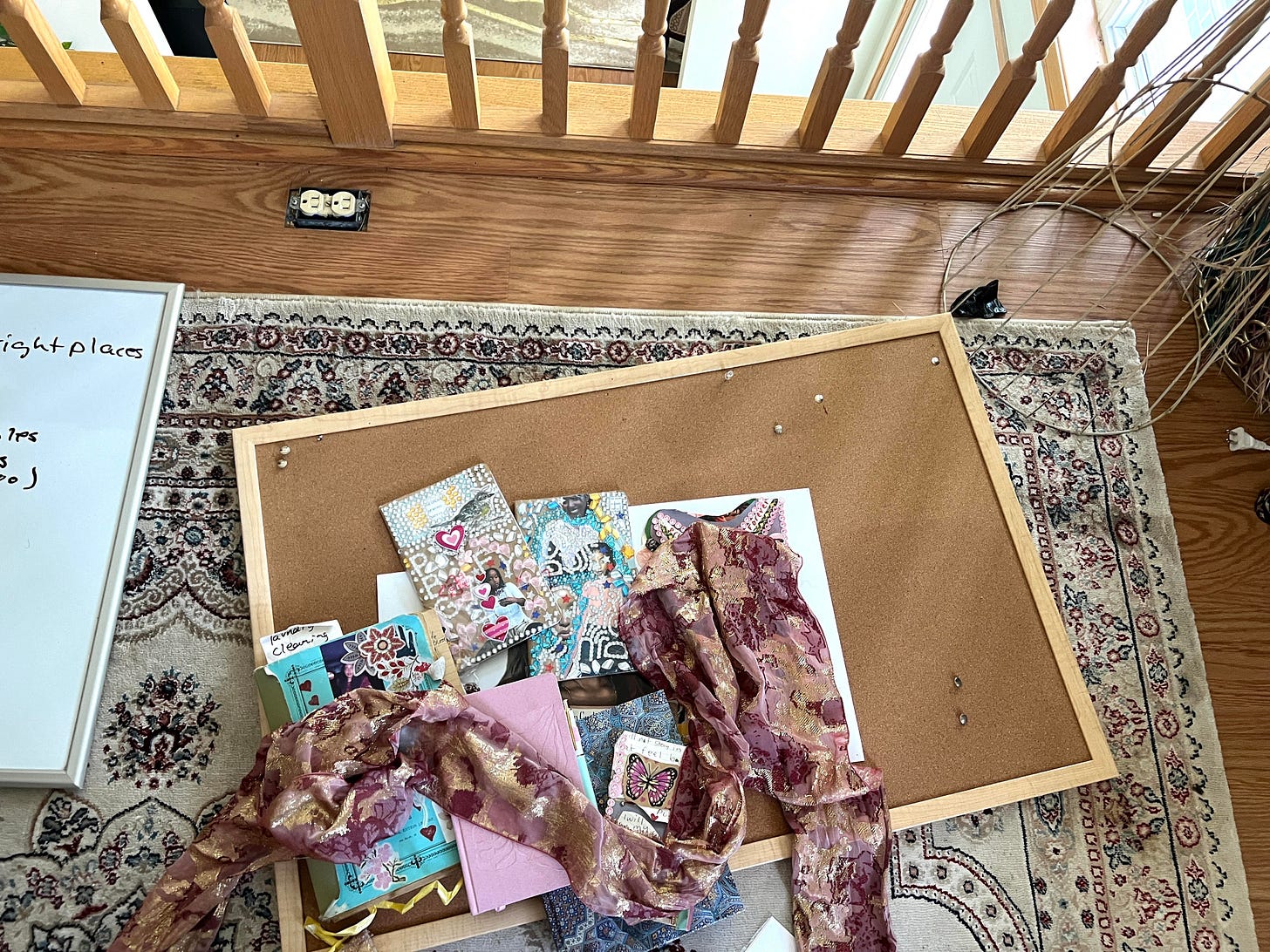My illegible brain dumps and disjointed notes have now surpassed the amount of “real writing” I do. I’m constantly jotting down reminders—bits and pieces meant for one of the three essays I’m concurrently working on. And yet, none of it feels like writing. This chaotic process reflects my fear of the blank page, my memory issues, and the avoidance that seeps into every part of my life. I can’t do anything on time, especially the things I need to confront the most.
My last blog post was the first time I wrote from an emotional place in ages. Living with complex trauma, I've often tried to strip my writing of emotion and sensitivity, presenting a rational, unemotional facade. But this approach has only obscured the truth further. The truth lies somewhere between my fleeting emotions and my rationalism. I aim to communicate urgent ideas about culture and the human condition, not just narrate personal grievances, allowing me to focus on the bigger picture. And in that bigger picture, my image is wallet-sized.
A former editor recently told me that you either have a cult of personality around you or you're a captive audience to one. The latter has always been true for me. I’ve spent my whole life pedestalizing random people—acquaintances, crushes, community figures, or famous writers. In many cases, contorting myself into someone that they could love but it was never that deep to them. They are opposed to me on aesthetic grounds, just as I am to things like TikTok vernacular in everyday speech or discussing my CPTSD. They are aesthetically opposed to my earnestness, my feminine excesses, my animated body, and sometimes, my blackness—everything that makes me Princess Babygirl.
All of these years, I thought I could make myself legible and therefore loved. But you can't be legible to anyone who refuses to see you. You can’t be loved by anyone who would render you an impermanent object. Deep down, I believe what's happening inside of me is mirrored in the culture, my romantic connections, and my collaborations. It’s all a reflection of the ongoing process of individuation, a process I hope will soon be rife with less projections of my deeply held inadequacies, desires, and fears..
We all mirror each other to turn perfect strangers into friends or enemies: seeing all the good in oneself in a friend and all the bad in oneself in an enemy. In both cases, people become mere receptacles of projection, stripped of their agency. The latter often leads to scapegoating because sometimes we don't like what we see in the mirror when it reflects ourselves. This is true of dressing rooms, funhouses, and other people.
On this blog, I've been incorporating fiction to enhance my storytelling. A recent example is my post about Jameela Jamil, which included a fake private Instagram story leak. The point was to expose compartmentalized parts of oneself to a wider audience. Such incidents are usually crafted to humiliate, but I think it’s more humiliating to be in the captive audience of such a person.
I believe the contents of my mind are not objective truths; everything I write is a sort of fiction—autofiction. Less extreme examples than the Jameela Jamil post are scattered throughout my blog. Though that post was a humorous Girardian analysis, it was also very Jungian. I don't see their work as opposed, even though René Girard was not a fan of Carl Jung. I've come to realize that many people don't like Jung, which is understandable. He’s not for everyone—nobody is.
Writing is the ultimate mirror, reflecting the sublimated aspects of ourselves—the unconscious parts we wish we could erase. In life and collage art, you can't erase what has happened, but you can write over it, illuminating a more authentic—albeit palimpsestic—self composed of all the unreconciled fragments of identity that you tried to offer up to people you were never meant to be legible to or seen by.
Some recent synchronicity events that affirm that I am, if nothing else, legible and seen by God:




